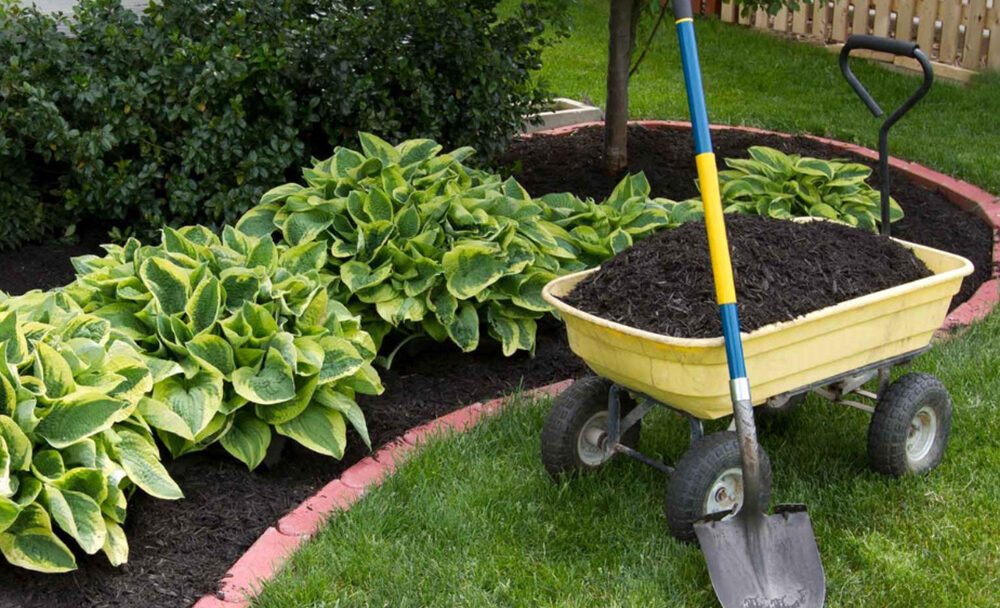Mulching is a garden and landscaping technique that involves placing a layer of organic or inorganic material over the soil surface around plants to improve soil health, conserve water, and suppress weeds. Mulching is a simple yet effective way to protect and enhance the soil, and its benefits are significant. In this post, we will explore why mulching is important and how it can benefit your garden or landscape.
One of the primary benefits of mulching is that it helps to conserve moisture in the soil. When you place a layer of mulch over the soil around your plants, it acts as a barrier, reducing the evaporation of moisture from the soil. As a result, your plants are able to retain more water, and you will not need to water them as frequently. This is particularly important in dry climates or during periods of drought when water is scarce.
Mulching also helps to regulate soil temperature. In the summer, mulch helps to keep the soil cool by reducing the amount of heat that is absorbed by the soil. In the winter, it provides insulation, keeping the soil warm and protecting the roots of your plants from freezing. This is particularly important in areas with extreme temperatures, where plants may struggle to survive without adequate protection.
Another benefit of mulching is that it helps to prevent soil erosion. When it rains, water can wash away soil, causing erosion and exposing the roots of your plants. By placing a layer of mulch over the soil, you can help to reduce the impact of rain and prevent soil erosion. This is particularly important if you have sloping terrain or areas with loose soil.
Mulching also helps to suppress weeds. Weeds can be a significant problem in gardens and landscapes, competing with your plants for water, nutrients, and sunlight. By placing a layer of mulch over the soil, you can prevent weeds from germinating and growing. This is because mulch blocks sunlight from reaching the soil, preventing weed seeds from sprouting. In addition, mulch can also help to smother existing weeds, reducing the need for weed control measures.
Finally, mulching is important because it helps to improve soil health. Organic mulches such as compost, leaves, and grass clippings break down over time, adding nutrients to the soil and improving its structure. Inorganic mulches such as gravel or stones do not add nutrients to the soil, but they can still improve soil structure by providing a stable base for plants to grow in. By improving soil health, you can create a healthy environment for your plants to thrive in.
In conclusion, mulching is an important technique that can help to conserve water, regulate soil temperature, prevent soil erosion, suppress weeds, and improve soil health. Whether you are a seasoned gardener or a novice landscaper, mulching is a simple and effective way to protect and enhance the soil around your plants. So next time you are working in your garden or landscape, consider adding a layer of mulch to reap the many benefits that it provides.



